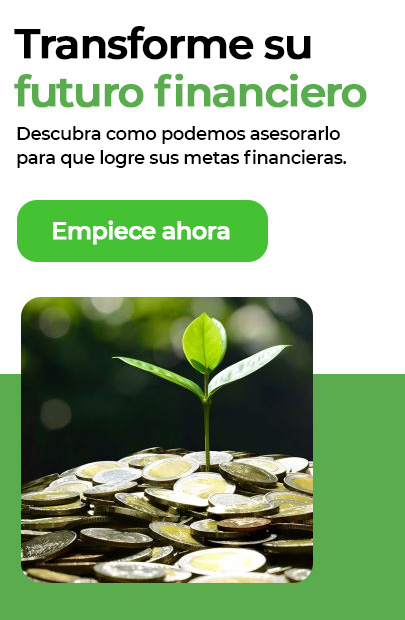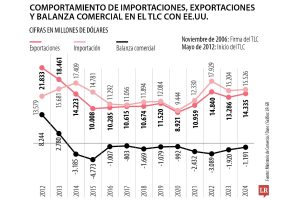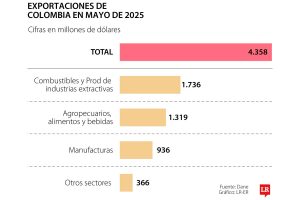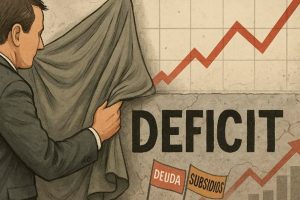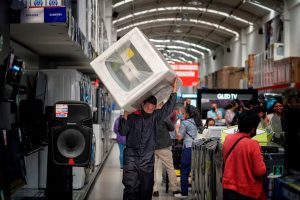One of the most important aspects of maintaining a successful family business through multiple generations is having a thoughtful and intentional succession plan to ensure an orderly transition from one generation to the next.
More than seven in 10 family businesses say they want to ensure their business stays in the family, but just 34% have a robust, documented and communicated succession plan in place, according to PwC research.
The right approach to succession will vary depending on the size and maturity of the business, the long-term goals of both the company and the family, and how many (if any) members of the next generation want a hands-on role in the enterprise. However, it can be helpful to see how other family businesses have successfully managed the transition. Here’s a look at strategies that worked for five family businesses that have recently completed a succession
Taking the Transition Slowly
Dawn Nielsen spent a few years after college deciding whether to pursue her dreams of becoming a veterinarian or to take over the business her parents had founded— Kolache Factory, a 60-location fast-food chain that sells Czech hand pies. Nielsen, who had worked at Kolache Factory since age 10, ultimately opted for the latter.
“So, we sat down, and they said, ‘Here’s our game plan,’” Nielsen says. “They gave me a VP title.”
Nielsen held that role for more than 22 years, gradually taking on additional responsibility as her father, John Banks, began scaling back his involvement in the 41-year-old company, which is based in Katy, Texas. About six years ago, Nielsen’s title changed to chief operating officer. She now runs the company day-to-day but consults with Banks, who still holds the CEO title, on bigger decisions.
Still, Banks is starting to spend more time on his ranch and away from Kolache Factory. For their company, the gradual transition has helped smooth the transfer of power.
“When you do something slowly and over time, people can absorb it better, and they don’t get flustered or worried that you’re going to come in and change everything,” Nielsen says. “But they get to see you making changes that help the company grow. It’s important to let the employees know that there is direction and a safety net, and the company isn’t going to go anywhere.”
The process is repeating itself now. Nielsen recently sat down with her daughter, Sabrina Nielsen, to discuss Sabrina’s plans for her future after several years working at other enterprises. In March, Sabrina joined the company as chief efficiency officer. Dawn Nielsen expects her to learn the business and grow her role in the years to come, eventually taking over the business.
Fair But Not Equal
Dwight Vicks’ father told Dwight and his two sisters early on that any of them were welcome to take over the family business, then called Vicks Lithograph and Printing, but they would have to work elsewhere first—and he would not split the business among them.
“There is only going to be one captain of the ship,” Vicks recalls his father saying of the business that Vicks’ grandfather had founded in 1918. “If one of you decides to come back, we will work out a transition plan to get as much stock as possible to that person. The other two will get liquid assets, so it will be fair, but not equal.”
So, Vicks became a banker in New York City, and his sisters found careers elsewhere. Vicks ended up going back to business school and decided he also wanted to return and run the family business, now known as Vicks Printing & Distribution, since to reflect its shift from lithographs to digital printing and distribution services.
After receiving his MBA, Vicks spent nine months working in every department and on every shift at the Yorkville, N.Y.-based company. Then he started as a customer manager and began putting that business degree to use, digging into the company’s finances, since there was no CFO. Vicks and his father worked together for 10 years until health challenges left the elder Vicks unable to continue working.
The decades since have been challenging for the printing industry, as many of its customers, which once included phone book and map publishers, have shifted to digital-only business models, shrinking the market. But Vicks has survived, thanks to that early pivot to digital and the extension into warehousing and shipping services.
Still, Vicks says his father’s insistence on having just one “captain” has made it easier to steer the ship through rough waters.
“His point was that whoever ran the company could end up with equity worth a lot, due to their hard work, or they could end up with equity worth nothing,” Vicks says. “But in a capital-intensive business, you don’t also want the additional pressure of having to pay a dividend to family members who don’t want to be in the business.”
Leaning into Strengths
Matt DiBara is the fourth-generation mason in his family, but at 19, a disagreement with his father led DiBara to leave the family business and launch his own masonry venture while still in college. DiBara had wanted the family business, DiBara Masonry, to start advertising online, but his father thought it unnecessary.
“He had a lot of resistance to the online tech stuff, so I just got licensed by myself and did it on my own,” DiBara says. “I ended up getting calls for six-figure projects, and I was even giving him work. So, he started to see the importance of marketing and advertising.”
Eventually, DiBara and his father reconciled their differences, combined the enterprises and moved the business from Boston to Los Angeles. While DiBara says his father taught him the fundamentals of bricklaying and managing projects at an early age, DiBara found himself teaching his dad more about managing the books and marketing to new customers.
DiBara says that was the first area in which he felt he knew more than his father, and that made his father uncomfortable at first and led to some disagreements. But once DiBara proved himself, that became a turning point, and the two worked together to grow the company.
One early focus area for DiBara, who worked with his father for seven years until the elder mason had to leave the business for health reasons, was on building the confidence in himself to make decisions and lead the company without turning to his father for advice.
“The biggest challenge was really trusting my gut,” he says. “I always had my dad to double-check things, but then it got to the point where my dad didn’t know as much as I did about growth and business strategies. That’s when I felt like I really became a business owner.”
Writing Down Processes
After decades running the Bailey Family of Companies, a Spring Grove, Pa.-based provider of transportation and travel services, John Bailey always knew when it was time to file for an updated certificate for a coach bus or renew an insurance policy.
But when his daughter, Courtney Bailey Piccolo, began taking a larger leadership role in the business, she worried that such important tasks might get lost since there was no written documentation of their due dates.
“The hardest part has been getting his years and years of experience documented,” says Piccolo, who took over as president and CEO in October. “He was always just continually operating on his own, so it wasn’t done in a way that was duplicatable or that someone else could follow to pull that responsibility off of him.
Piccolo’s ascent was part of a long-term transition plan in which she also took ownership of the company, which includes Bailey Coach, Bailey’s Zero Hazard, and Bailey Self Storage, along with business partner Kristy Fasano, who serves as the organization’s vice president and chief operating officer.
To make that transition possible, Piccolo, Fasano and Bailey all worked to present a united front as company leadership.
“Even if we don’t agree with what the other person was saying, we don’t ever want to have our staff thinking that they could go to one person and get one answer and another person to get another answer,” Piccolo explains. “And as I took on more responsibility, John had to just tell people to come to me about certain things, even if he knew the answer and they were used to asking him.”
Bailey concedes that part of the transition required a change in mindset on his part. “Sometimes I feel I’m not as engaged as I was,” he says. “But I’m not supposed to be as engaged as I was. I know the next generation can do the job and get it done.”
Providing an Off-Ramp
George Sousa always knew that after college he’d come back to work at the Mariani Packing Company, his family’s 117-year-old dried fruit company. Part of the fourth generation to join the business, Sousa began working on the sourcing side of the business, going on to hold positions in sales and operations. One of his first big responsibilities was managing the Kellogg’s account, a relationship that led to Mariani Packing Company supplying all the raisins for the cereal company’s iconic Raisin Bran.
Sousa’s cousin, Mark Mariani, whose grandfather started the company, was president of the firm at the time.
“I saw George’s capabilities, but more importantly his passion for the business,” Mariani says. “So, when he was in his mid-30s, I started purposely working with him and helped groom him to be a better president than I ever was.”
Sousa now serves as president, with Mariani holding the role of chairman and CEO. One of the biggest focuses for Sousa and Mariani in recent years has been putting processes in place for family owners to remain involved — or to exit the business. They set up a family council, which meets with senior management on a weekly basis and provides a forum for family members to have “hard conversations” about the business.
“It’s been great,” Sousa says. “We have had more tough subject matter conversations in the last six to eight months among family members than we have had in years because of this change. It’s been refreshing because people are so much more comfortable now verbalizing their concerns and what’s on their mind.”
One of those more difficult conversations has been around providing an opportunity for some family members to exit the business entirely.
“I think every family business should have buy-sell agreements as a failsafe,” Mariani says. “That just gives people who don’t want to get on board, or who don’t see the vision, to go ahead and get their marbles and go off and do their own thing. If you don’t have those agreements, you’re going to end up in court.”


